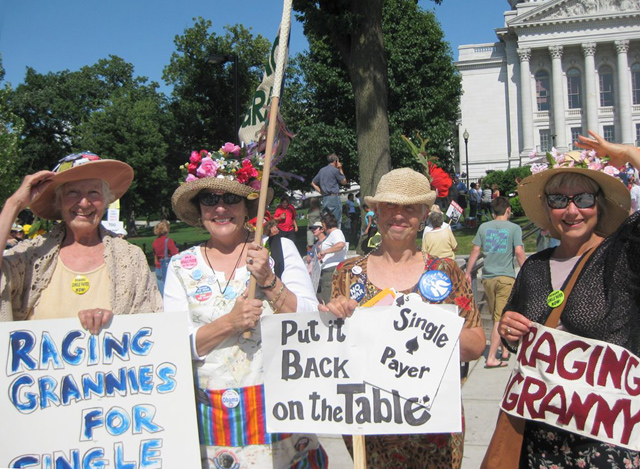A bill attempting to criminalize protest has passed the Arizona Senate — supported entirely by Republicans — and is headed to the state House.
The bill would add rioting to a list of offenses under racketeering law and prosecutors could charge rioting as a class 3 felony instead of a class 5 (adding years to a sentence). SB 1142 also would allow a prosecutor to seize a protester’s assets that could be used to criminally prosecute him. The bill claims to be aimed at “rioting,” but rioting is already illegal.
If a protest turns violent, whether people were engaged in the violence or not, just being at the protest would be enough for law-enforcement officials to seize their property.
According to the Arizona Capital Times, the bill, which passed Wednesday, “expands the state’s racketeering laws, now aimed at organized crime, to also include rioting,” and redefines “what constitutes rioting to include actions that result in damage to the property of others.”
With the new bill, anyone attending a peaceful protest that happens to turn violent would run the risk of losing his or her assets. The new bill would also allow police to arrest those who planned the protest even if they had nothing to do with any violence.
State Sen. John Kavanagh (R-Fountain Hills), who supported the bill, believes that the bill stops those active in “professional protest” whose only plan is to start chaos.
“You now have a situation where you have full-time, almost professional agent-provocateurs that attempt to create public disorder,” Kavanagh, a former police officer, told the Capitol Times. “Wouldn’t you rather stop a riot before it starts? Do you really want to wait until people are injuring each other, throwing Molotov cocktails, picking up barricades and smashing them through businesses in downtown Phoenix?”
News of the bill’s passage in the State Senate shocked many Democrats and others who have found a much-needed outlet in public protests and demonstrations since the election of Donald Trump.




























